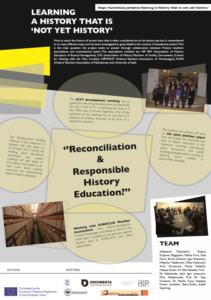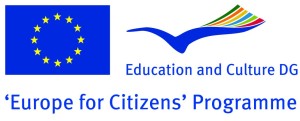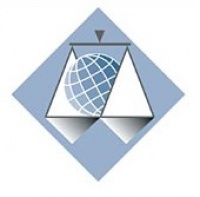[siteorigin_widget class=”SiteOrigin_Panels_Widgets_PostContent”][/siteorigin_widget]
How to teach the history of recent wars that is often considered not to be history yet, but is remembered in so many different ways, and has been investigated in great detail in the context of transitional justice? This is the main question the project seeks to answer by investing in a unique partnership among teachers and their associations from former Yugoslavia, in which transnational teams will collaboratively create a free ready-to-use learning resource about the 1990s Yugoslav wars.
This resource explores how this history should be addressed in a multi-perspective way; how war impacts developed societies and everyday life and to what extent history educators can also address current wars across the world through the lens of the experiences in the wars of the 1990s.
Project Aims
The project aims to contribute to the field of European remembrance through raising the awareness among teachers, students and pupils that common approaches to the very sensitive past are possible, so that they may raise awareness in their countries that common remembrance is possible.[su_list icon=”icon: caret-right”]
- To contribute to citizens’ understanding of the Union, its history and diversity.
- To raise awareness of remembrance, common history and values and the Union’s aim that is to promote peace, its values and the well-being of its peoples by stimulating debate, reflection and development of networks.[/su_list]
Outcomes
[su_list icon=”icon: caret-right”]
- An ONLINE DATABASE with 100+ entries of existing (educational) resources that could be used in teaching the 1990s in schools, reviewed and agreed upon by representatives from all countries. This is available in four local languages (Bosnian, Croatian, Montenegrin and Serbian) as well as English on the website devedesete.net.
- An exemplar WORKSHOP on War(s) in photos commonly developed by two authors from Bosnia-Herzegovina and Serbia. This activity is designed for teachers, and serves as an example of how this sensitive topic could be tackled in the classroom.
- A RESEARCH REPORT on an European-wide survey on how the 1990s wars are remembered (personal level) and officially commemorated across Europe. The survey was designed in cooperation with ISHA and distributed online in the period October-December 2017, resulting in 175 responses from 31 countries. The report looks at the involvement of the country of the respondent in the 1990s wars, and the official state commemorations or other commemorations related to these wars.
- Joint RECOMMENDATIONS on how to teach the 1990s wars responsibly. The report Making sense of the past that refuses to pass was developed by the project experts, with feedback of the whole team. It touches upon challenges in learning and teaching of the subject of history in primary and secondary schools in respective countries, and provides recommendations for responsible teaching of the wars in Yugoslavia and its successor states, making use of existing guidelines, recommendations and educational approaches to the teaching of other sensitive and controversial topics. Click here to download the recommendations.
Local ISHA Events
In order to raise awareness and stimulate discourse about the remembrance of the Yugoslav Wars, International Students of History Association (ISHA) will be organizing the following local events for students and educators in the months of November and December 2017. These events are organised in close cooperation with EuroClio, and aim to promote a multi-perspective approach to these sensitive historical issues.
[su_list icon=”icon: caret-right”]
- ISHA Berlin: Visit to the Theatre and Workshop on the play “Common Ground” with the Maxim-Gorki-Theatre (5th – 6th of November)
- ISHA Belgrade: The 1990s in Serbia: Collapse of Yugoslavia and the Cultural Transition (24th -26th of November)
- ISHA Graz: Learning a History that is not yet History (28th of November)
- ISHA Zagreb: (Anti)war propaganda during the 90’s Yugoslav Wars (30th of November – 1st of December)
- ISHA Skopje: The wars in Yugoslavia through the social prism (2nd of December)
- ISHA Sarajevo: Everyday life in Sarajevo during the war 1992-1995 (8th and 9th of December)
- ISHA Maribor: The Ten-Day War: Through the Prism of History and the People (11th of December)
- ISHA Osijek: Life during the sieges in Yugoslav Wars of the 1990s (12th and 13th of December)
- ISHA Ljubljana: Youth in Yugoslavia, growing up before and after the break of Yugoslavia (14th of December and 18th of December)
- ISHA Budapest: “Not Yet Our History?” – Remembering and Teaching the Yugoslav Wars in Hungary (15th of December)
At the ISHA event in Maribor, participants filled in a survey meant to analyze how the 1990s Yugoslav Wars are remembered and commemorated across Europe. The report which analyses the results is available to download here.
For a concise overview of all activities for this project, click here.
Below you will find reports for the remaining public events:
ICTY Development Workshop in The Hague
Public Debate Event in Brussels
[/su_list]



![[BOSNIA] EUROCIO - HIP](https://euroclio.eu/wp-content/uploads/2015/09/BOSNIA-EUROCIO-HIP-300x111.png)
![[MONTENGRO] HIPMONT](https://euroclio.eu/wp-content/uploads/2015/09/MONTENGRO-HIPMONT.png)
![[CROATIA] Association for Education and Human rights promotion](https://euroclio.eu/wp-content/uploads/2015/09/CROATIA-Association-for-Education-and-Human-rights-promotion-300x100.jpg)
![[CROATIA] Documenta - Center for dealing with the past](https://euroclio.eu/wp-content/uploads/2015/09/CROATIA-Documenta-Center-for-dealing-with-the-past-300x75.png)
![[CROATIA] University of Split](https://euroclio.eu/wp-content/uploads/2015/09/CROATIA-University-of-Split-300x132.jpg)
![[MACEDONIA] ANIM](https://euroclio.eu/wp-content/uploads/2015/09/MACEDONIA-ANIM.jpg)

